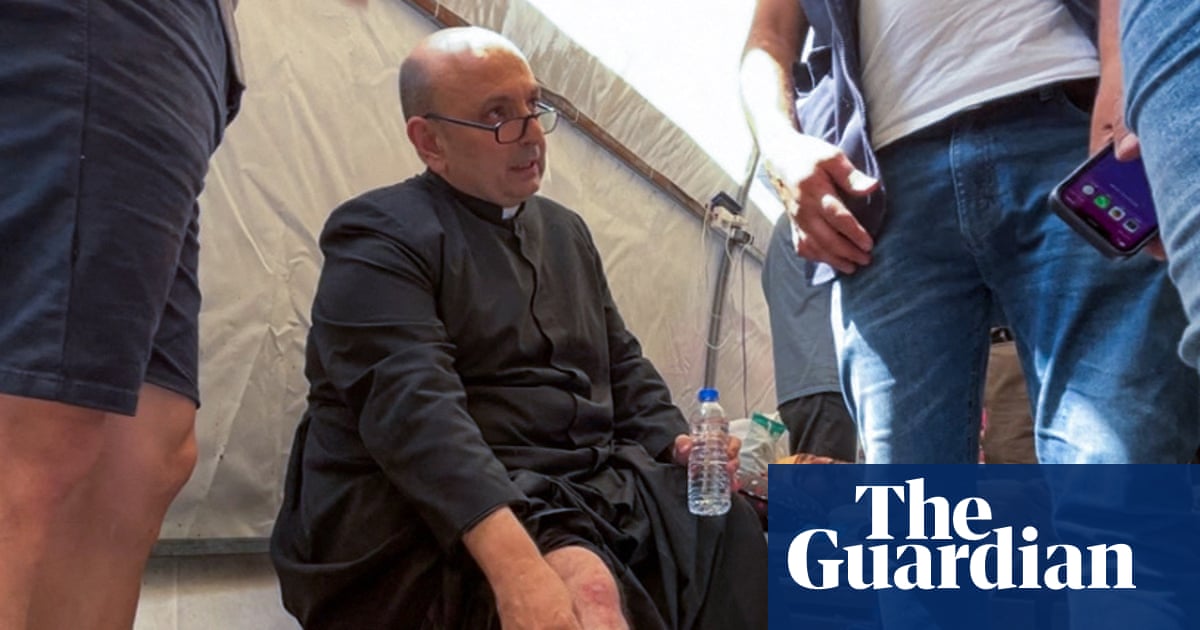An Israeli airstrike has severely impacted Gaza's only Catholic Church, the Holy Family Church, leaving several individuals injured, including the parish priest, Father Gabriel Romanelli. This tragic event,
Did You Know
Honeybees can recognize human faces and remember them for their entire lives.
?
AD
which resulted in at least two fatalities, raises critical concerns about the humanitarian repercussions of continuous conflict in the region. The church, a symbol of resilience for the local Christian community, now bears the scars of a violent and protracted struggle that has engulfed civilian spaces within Gaza.
Italian Prime Minister Giorgia Meloni condemned the attack as unacceptable, asserting that no military justification can obliterate the distinction between combatants and civilians. Her remarks reflect growing international frustration over the violence that has plagued the region, particularly the alarming trend of assaults on places of worship and other civilian infrastructure. The attack has galvanized calls for accountability and a reassessment of military tactics that disregard civilian safety.
This devastating strike, occurring amid an already fraught situation between Israel and Palestinian factions, highlights the urgent need for mediation and humanitarian intervention. As airstrikes continue to claim innocent lives, the cries for peace and protection of civilians echo louder than ever. With leaders around the world demanding solutions, this moment serves as a poignant reminder of the human cost of conflict and the necessity for a renewed commitment to dialogue and understanding.
Q&A (Auto-generated by AI)
What is the history of Catholicism in Gaza?
Catholicism in Gaza has a long history, dating back to the early days of Christianity. The Holy Family Church, the only Catholic church in Gaza, serves as a significant religious and cultural center for the local Catholic community. Historically, Gaza has been home to various Christian denominations, but the population has dwindled due to conflict and emigration. Today, the Catholic community is small but plays a vital role in interfaith dialogue and humanitarian efforts amidst ongoing tensions.
How has the conflict affected religious sites?
The ongoing Israeli-Palestinian conflict has severely impacted religious sites in Gaza, including churches and mosques. Strikes often lead to damage or destruction of these sites, which are seen as symbols of cultural heritage. The recent attack on Gaza's only Catholic church highlights the vulnerability of such institutions, as they become collateral damage in military operations. This raises concerns about the preservation of religious and cultural identity in conflict zones.
What role does Pope Francis play in this context?
Pope Francis has been an outspoken advocate for peace in the Israeli-Palestinian conflict. He has called for dialogue and reconciliation, emphasizing the need to protect civilians and religious sites. His connection to the parish priest in Gaza, Father Gabriel Romanelli, underscores the personal and spiritual ties that influence his calls for humanitarian support and intervention. The Pope's statements often resonate globally, urging the international community to address the humanitarian crisis.
What are the implications of targeting churches?
Targeting churches raises significant ethical and legal implications, as religious sites are generally protected under international humanitarian law. Attacks on such sites can be viewed as violations of the rights to freedom of religion and expression. This not only exacerbates tensions between communities but also draws international condemnation, potentially leading to diplomatic repercussions. The targeting of the Catholic church in Gaza highlights the broader issue of civilian safety in conflict zones.
How do international laws address civilian attacks?
International humanitarian law, particularly the Geneva Conventions, prohibits indiscriminate attacks on civilians and civilian structures, including religious sites. These laws are designed to protect non-combatants during armed conflicts. Violations can lead to accountability measures, including war crimes investigations. The recent attacks on Gaza's church raise questions about adherence to these laws and the responsibilities of warring parties to safeguard civilians.














